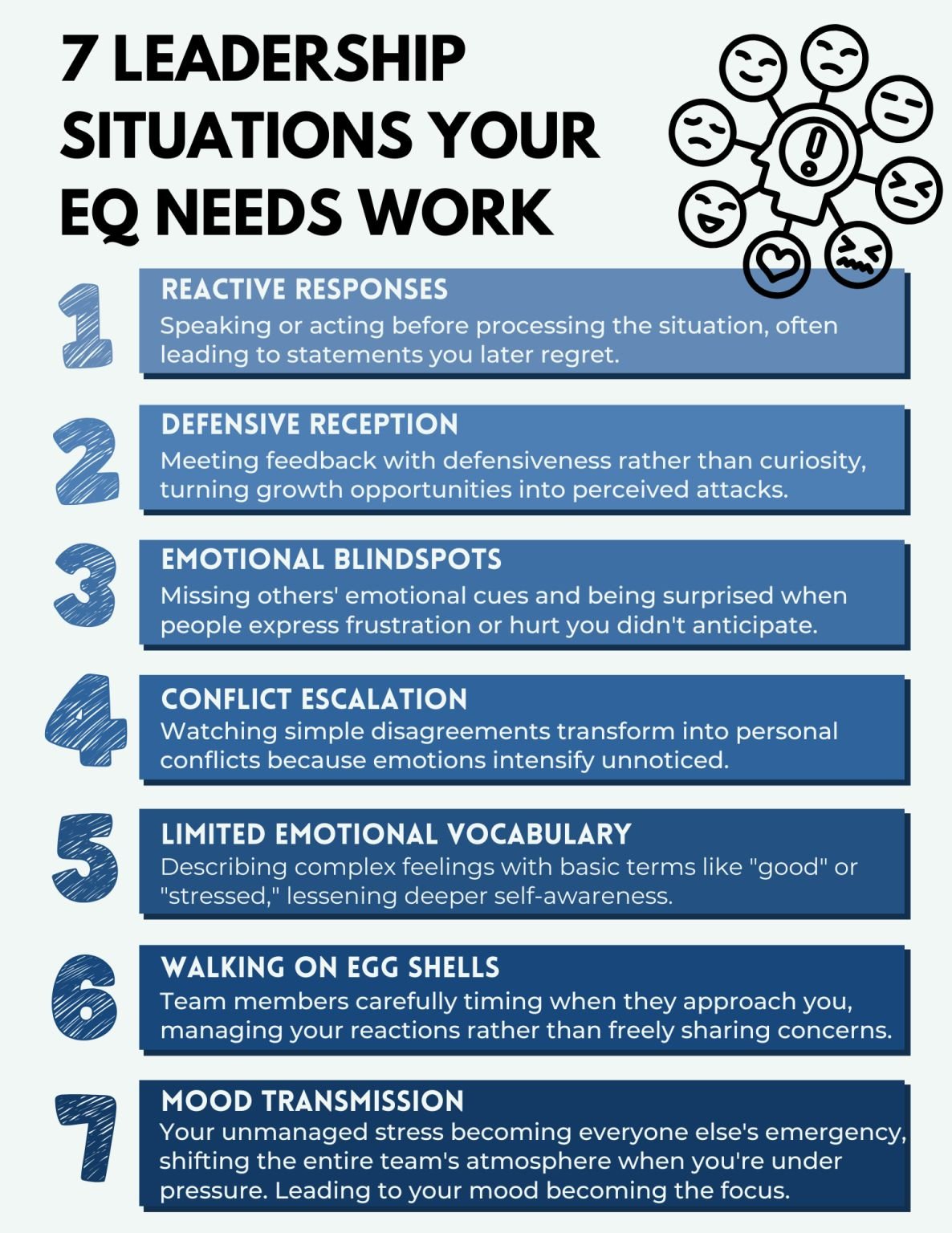Low emotional intelligence (EI) can have far-reaching effects on workplace dynamics, often impacting team members more than the individuals who lack these skills. Here are seven indicators that your emotional intelligence might need improvement:
1. **Immediate Reactions**: You often respond to situations without taking time to think. This impulsiveness can lead to misunderstandings and conflict.
2. **Perceived Criticism**: When receiving feedback, you feel personally attacked instead of viewing it as constructive. This mindset can hinder personal and professional growth.
3. **Unawareness of Others’ Feelings**: You find it surprising when colleagues express disappointment or frustration. This lack of awareness can create distance between team members.
4. **Conflict Escalation**: Difficult conversations tend to escalate into confrontations rather than constructive discussions. This can create a toxic work environment.
5. **Limited Emotional Vocabulary**: You struggle to identify your emotions beyond basic descriptors like “good” or “bad.” This can prevent effective communication of your feelings and needs.
6. **Reluctance from Team Members**: Your colleagues may hesitate to voice their concerns or ideas, fearing negative reactions. This stifles creativity and innovation within the team.
7. **Transferring Stress**: Your stress often spills over into the team, turning your individual challenges into group emergencies. This behavior increases anxiety among coworkers.
The impact of low emotional intelligence extends beyond personal experiences. Research shows that it can cloud decision-making, diminish productivity, and stifle innovation. Teams led by individuals with low EI often experience higher turnover rates, with many employees citing management issues as a reason for leaving.
Fortunately, emotional intelligence can be developed over time. Here are three effective practices to improve your EI:
– **The 6-Second Pause**: When you feel your emotions rising, take six seconds to breathe and collect your thoughts before responding. This pause can prevent knee-jerk reactions and help you engage more thoughtfully.
– **Emotion Mapping**: Practice identifying your emotions in detail. Instead of saying you feel “frustrated,” try expressing it as “disappointed because I expected support.” This specificity can enhance your understanding and communication.
– **Reflection Questions**: Ask yourself questions like “What might I be missing?” and “What is the other person experiencing?” These questions encourage empathy and help you better understand the perspectives of others.
Leaders who have successfully improved their emotional intelligence often started from a place of low awareness. They made changes gradually, focusing on one interaction and one moment of self-awareness at a time. Consider what specific practice you can commit to this week to start your journey towards better emotional intelligence.



